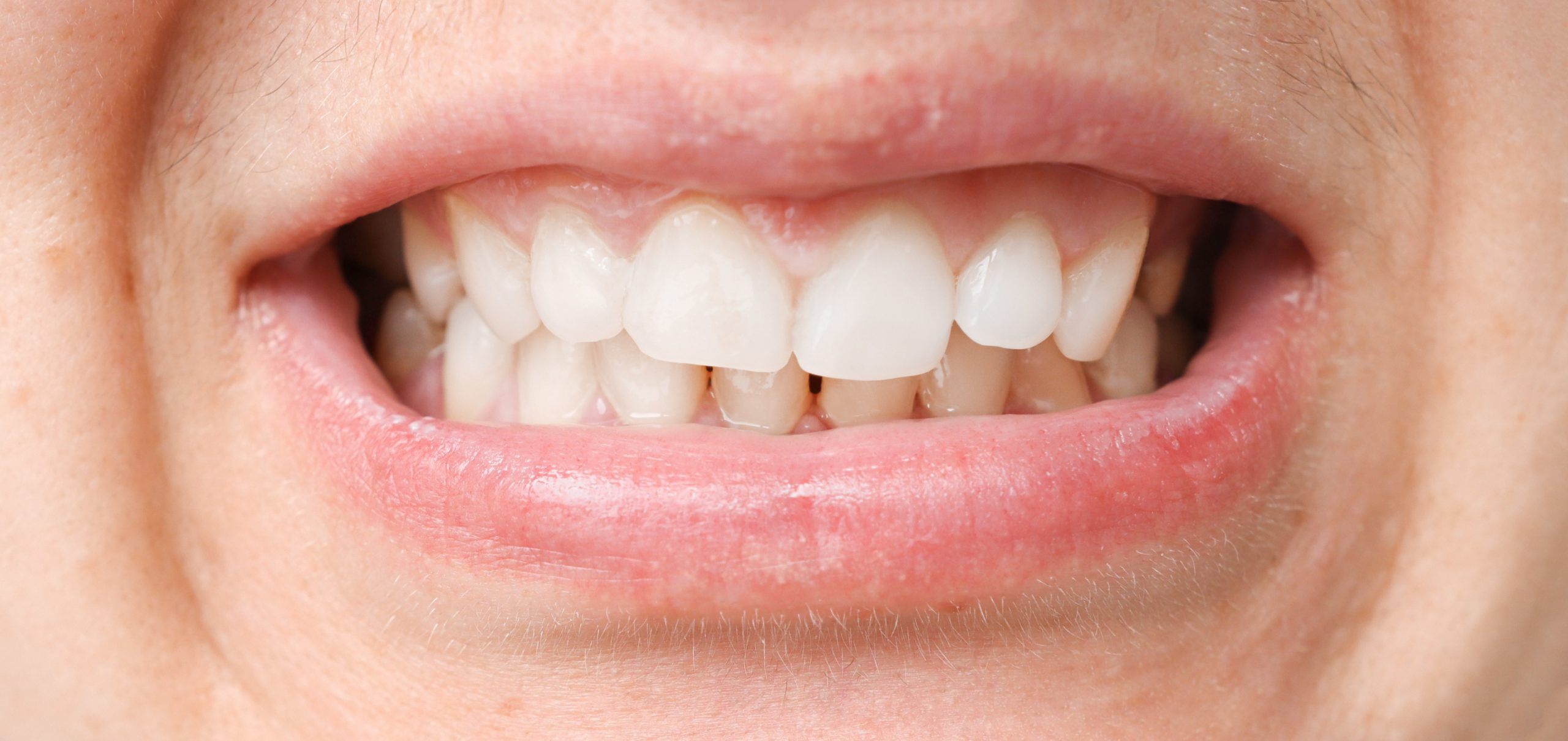Misaligned Jaw – Symptoms, Causes and Treatment Options
Jaw misalignment is an alignment condition where your upper teeth do not sit perfectly over the lower ones. Overbites, underbites, and crossbites are some of the most common kinds of jaw misalignments. Overbite is a condition where the upper set of teeth close ahead of the lower ones while the opposite happens in the case of underbites. A crossbite is a dental condition where the upper set of teeth sits inside the lower set. Each of these conditions can cause problems in basic functions like biting and chewing. In several cases, misaligned jaws can cause severe pain and result in various kinds of gum diseases. Let’s delve deeper into the misaligned jaw causes and understand how to fix a misaligned jaw.
Causes of Misaligned Jaw
Genetic reasons along with early childhood habits are some of the primary causes of a misaligned jaw. Several teeth alignment conditions can also result in jaw misalignment. Understanding the root cause of this condition can help in treating it better. Let us look into some of the main causes of a misaligned jaw.
- Bruxism- Bruxism is a condition where a person clenches and grinds their teeth. This constant grinding can cause the teeth to move out of their normal position and can lead to inflammation and a crooked jaw.
- Temporomandibular Joint (TMJ) Disorder- TMJ is a joint that connects the maxilla (upper jaw) and mandible (lower jaw). The disproportionate structure of TMJ or its misalignment is one of the main causes of irregular jaw shape.
- Injury- Accidents and sports injuries are other common causes of a misaligned jaw. Physical contact sports such as boxing, martial arts, football, and rugby are some of the main contributors to jaw injuries.
- Hereditary factors- Many patients are born with a misaligned jaw and to fix the jaws to their correct position, several doctors recommend solutions such as retainers and braces. Patients might also be advised to undergo surgery depending on the severity of the situation.
Misaligned jaw symptoms
Misaligned jaw symptoms can range from pain in the jaws to aches in the muscles surrounding them. The symptoms of a misaligned jaw can differ based on the severity of the condition. Let’s look into some of them.
- Headache
- Shoulder pain
- Facial Swelling
- Clicking sound made by the jaw
- Change in the facial structure
- Inability to open the mouth completely
- Weakening of teeth
- Jaws tightening
- Pain in gums
Misaligned jaw treatment
Misaligned jaw treatment differs based on the severity of the condition. A misaligned jaw can be ignored by people in case of mild disorientation. However, in medium to severe cases, doctors might suggest some of the following options.
- Braces- Braces are one of the most commonly used treatments for misaligned jaws. They hold on to your teeth firmly and guide them toward their appropriate position. Braces are attached firmly to the teeth and rectify the condition over some time.
- Aligners- Aligners are the most popular form of dental treatment. One of the biggest advantages of aligners is that they are convenient to use and can be customized as per your jaw and teeth measurements. Aligners must be worn for 22 hours a day to witness the best results. Another beautiful aspect of using aligners is that one doesn’t have to follow any dietary restrictions and undergo treatment in a carefree manner.
- Dental bridges- Jaw misalignment can also be caused due to missing teeth. This is where dental bridges step in and fill up the void in your mouth. A dental bridge helps in restoring bite, smile, and overall health. They provide great value aesthetically and instill confidence in the patient.
- Jaw Surgery- Patients can choose to undergo jaw surgery if their jaw is severely misaligned. This option is usually used as the last resort and procedures like Maxillary osteotomy (surgery on the upper jaw) mandibular osteotomy (lower jaw surgery) or genioplasty (chin restructuring) can be performed on the patient.
Most Recent
Difference Between Overjet and Overbite
 3-Feb-2023
3-Feb-2023
How To Fix Gap in Front Teeth?
 3-Feb-2023
3-Feb-2023
Snaggletooth: Causes and Treatments Options
 3-Feb-2023
3-Feb-2023
How to Overcome Dental Anxiety Forever?
 3-Feb-2023
3-Feb-2023

